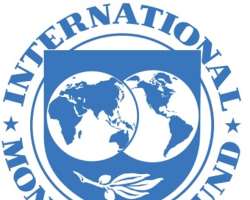Statement at the Conclusion of an IMF Mission to Sudan to Conduct the First Review under the Staff-Monitored Program

KHARTOUM, Sudan, May 10, 2014/African Press Organization (APO)/ -- An International Monetary Fund (IMF) mission led by Mr. Edward Gemayel visited Khartoum during April 29-May 8, 2014 to conduct the first review under Sudan's 2014 Staff-Monitored Program (SMP). The mission held discussions with Minister of Finance and National Economy BadrEldeen Mahmood Abbas, Minister of Petroleum Makawi Mohamed Awad, Governor of the Central Bank of Sudan Abdelrahman Hassan Abdelrahman Hashim, and other senior government officials. The mission also met with members of the diplomatic and donor community, as well as with members of the business community.
Mr. Lodewyk Erasmus, the IMF's Resident Representative in Sudan, issued the following statement in Khartoum at the conclusion of the mission on May 8:
“Sudan's 2014 SMP, which supports the authorities' economic adjustment program, was approved by the IMF Managing Director on March 7. The main objectives of the program are in line with the Government's Three-Year Emergency Program for 2012-14, which aims to improve Sudan's economic and financial conditions that deteriorated in the aftermath of the secession of South Sudan.
“Preliminary data suggest that economic performance in the first quarter of 2014 is improving in line with projections under the SMP. Twelve-month inflation fell to 35.7 percent at end-March, from 41.9 percent at end-December 2013. Reserve money and broad money grew by 3.2 percent and 6.7 percent, respectively. The overall fiscal deficit is estimated to have reached 0.2 percent of GDP compared with 0.5 percent of GDP in the same period of 2013.
“Against this background, the mission noted, however, the widening gap between the official and parallel market exchange rates. This gap is the result of a range of factors, including uncertainty about the revenues from oil transit as the conflict in South Sudan continues, domestic political uncertainty in the run-up to next year's presidential elections, and imbalances in the foreign exchange market. The mission urged the authorities to follow through on their intention to address these imbalances through greater exchange rate flexibility, which would help restore competitiveness and support exports and growth, avoid the loss of international reserves, and provide a shock absorber for the economy.
“Most of the end-March targets under the SMP were met. The authorities have also made good progress toward meeting their structural benchmarks. The mission welcomes the authorities' commitment toward meeting the objectives of their economic program. In this regard, it welcomes the establishment of an Inter-Ministerial Committee to monitor implementation of policies and the coordination of fiscal and monetary policies.
“Resolving Sudan's unsustainable external debt is important for the adjustment to the impact of South Sudan's secession, implementation of the government's poverty reduction policies, and for supporting inclusive growth. The mission underscored the importance of securing the required support for providing comprehensive debt relief from Sudan's bilateral external creditors. The mission welcomed the work of the Tripartite Committee –Sudan, South Sudan, and the African Union High Implementation Panel—that was established under the Joint Approach to the International Community, and urged the authorities to continue to reach out to Sudan's external creditors.
“The mission would like to thank the authorities for their hospitality and their excellent cooperation and the frank and constructive discussions.”
